16:45
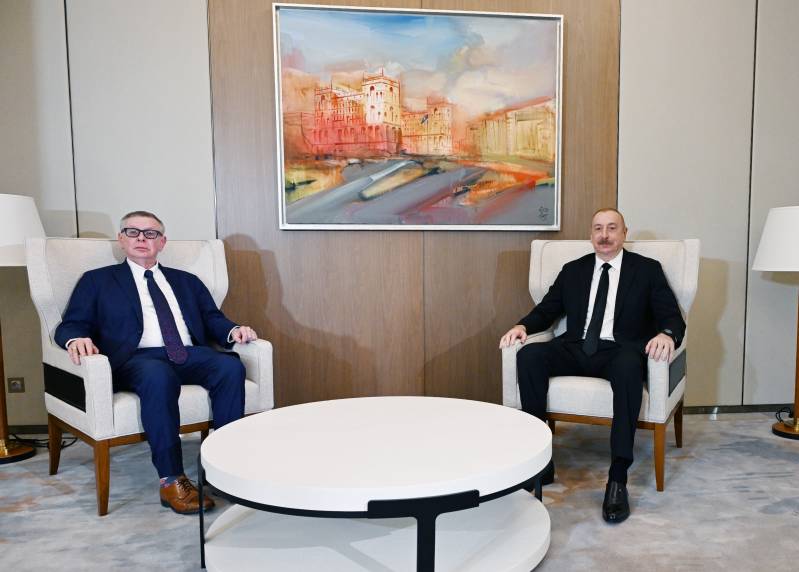
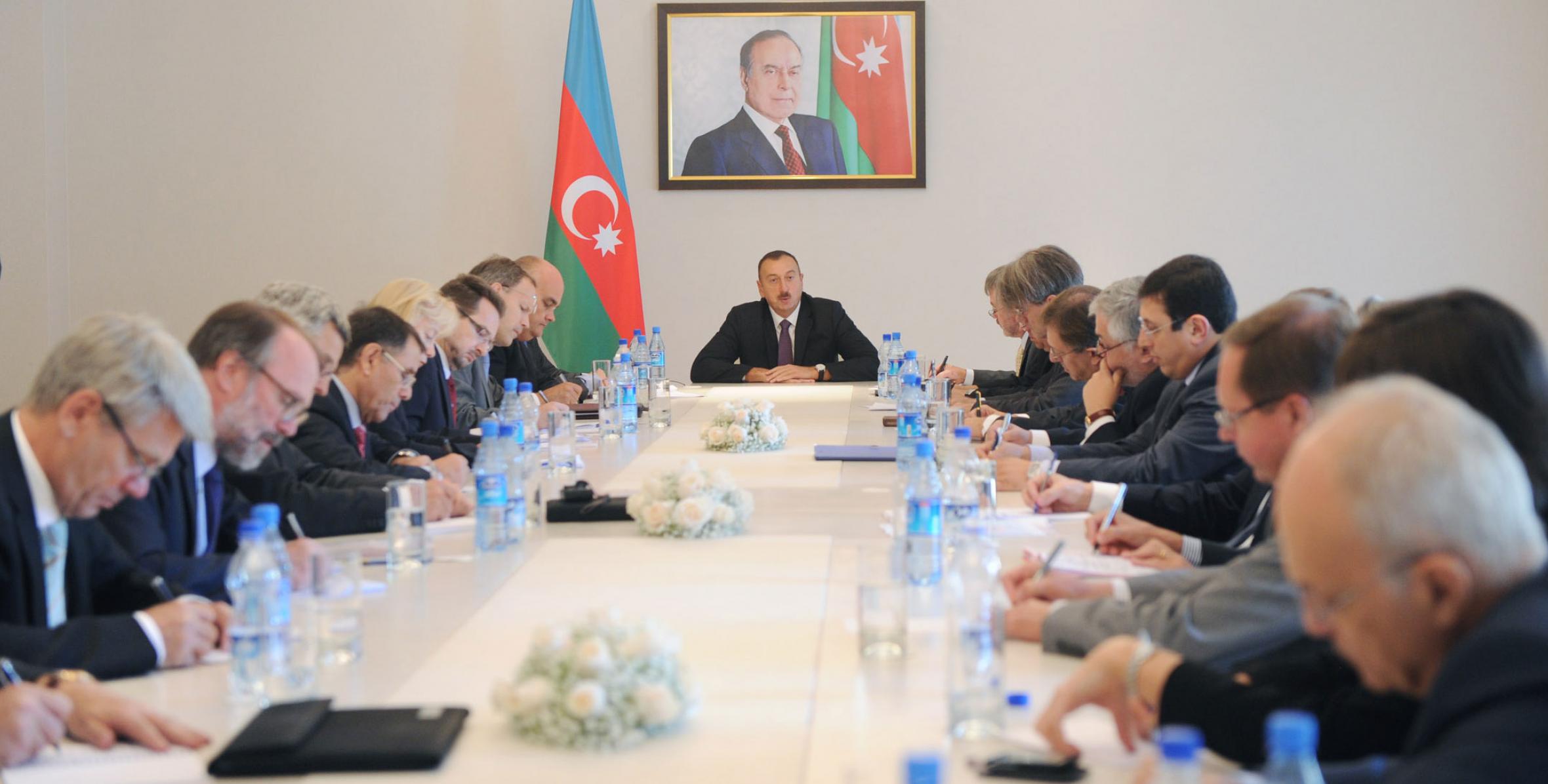
President Ilham Aliyev has received Ambassadors of OSCE member-states in Gabala.
Welcoming the diplomats, President Ilham Aliyev said:
- Dear Ambassadors, welcome!
First of all, I express my appreciation to you for coming to Gabala. I know you are very busy, that you have a lot of meetings in Baku today and tomorrow. I hope that your meetings will be successful. You will see first hand the situation in Azerbaijan, which you often hear about from the media. This is a great opportunity to meet people, see the development and achievements of the country.
Last year we celebrated the 20th anniversary of our independence. Over this period, Azerbaijan has achieved obvious progress in all areas. Azerbaijan's election to the UN Security Council last year is vivid evidence of the support provided to us by the international community. Over the 20 years we have shown ourselves to the world, have said our word. The support we have received from 155 countries is the result of our work.
We are conducting a policy of political and economic reforms, trying to carry them out in parallel. We have achieved development in this area. Azerbaijan has been a member of the Council of Europe for over 10 years. We have assumed a number of commitments on political transformation. In hindsight, looking back to where we were, we can see that there was no political system and market economy then. Until 1991, we were part of the Soviet Union. You know what a system it was. Now the country has political institutions, democratic freedoms, freedom of expression, freedom of assembly, freedom of the press. I think this has played an important part in the development of our people. We have free Internet, 60 per cent of our population are Internet users. All the villages are provided with broadband Internet. The program will be completed within one and a half years at the latest.
We have made significant changes in the economic sphere. The share of the private sector in our economy is over 60 per cent.
For several years we were the fastest growing country in the world. This allowed us to triple our gross domestic product and reduce poverty from 49 to 7 per cent in the past nine years. The unemployment rate fell to 5.4 per cent. We have created 1 million jobs in a country with a population of over 9 million people. We have also diversified the economy.
International financial institutions support our reforms. Azerbaijan is in 46th place in the global economic competitiveness ranking of the Davos Economic Forum. For several years we have been the leading CIS country. Despite the financial and economic crisis, the rating agencies Standard & Poors, Moody's and Fitch have recently raised Azerbaijan’s credit rating. Living standards are improving by the day. We are implementing numerous social infrastructure projects and economic transformation is already a reality. At the same time, we have eliminated our dependence on energy sources. We have got rid of the dependence which existed when we started the reforms. Currently, the share of the energy factor in the GDP is declining, the proportion of the non-oil sector is growing. In the first six months of this year, our non-oil economy grew by more than 10 per cent. This shows that economic transformation and diversification have been successful.
When we started the implementation of energy projects, some were claiming that we would face the threat of the Dutch disease, that oil would become a curse for Azerbaijan. But thanks to the wise management of financial resources received from energy projects, judicious distribution of wealth among the population and the implementation of strategic projects, we have managed to reduce the dependence on the energy factor. Despite this, energy security will remain an important part of our economic and political life. Now there is an ever greater need for our energy.
We are implementing important energy projects aimed to promote extensive cooperation with our friends, predict the global energy market, ensure a fair competition between producers, balance the interests of producers, transit countries and consumers. I am sure that today and tomorrow you will have the opportunity to see our development, the challenges we are facing.
The main issue of concern not only for us but also the whole world is the ongoing occupation of Azerbaijani lands. I would not want to go into the details of the conflict and the reasons that led to it. You know that well enough. But I would like to draw your attention to two issues. Azerbaijan is a victim of Armenian aggression. This is an undeniable fact. Armenia continues to hold 20 per cent of Azerbaijan’s internationally recognized territory under occupation.
As you know, Nagorno-Karabakh is an integral part of Azerbaijan. From a historical point of view, this territory was inhabited by the Azerbaijanis. From a legal point of view, Nagorno-Karabakh is part of Azerbaijan. There was a Nagorno-Karabakh Autonomous Region in the Soviet time, not even an autonomous republic. It had no administrative borders with Armenia. Thus, Nagorno-Karabakh is located inside Azerbaijan. When the conflict broke out, the ethnic composition of the people living there was in the ratio of 75:25 per cent. All the Azerbaijanis were ousted from Nagorno-Karabakh. Armenia conducted a policy of ethnic cleansing in seven surrounding districts as well, although the Armenians had never lived there before. As a result, we have more than 750,000 IDPs displaced from the districts surrounding Nagorno-Karabakh, 40,000 from Karabakh itself and more than 200,000 from Armenia. These figures, of course, relate to the beginning of the conflict, the time of ethnic cleansing.
And these figures are growing due to the fact that the IDPs population has registered demographic growth.
The districts adjacent to Nagorno-Karabakh have been destroyed. The OSCE has sent two missions to the region. The first was a fact-finding mission, the second was an evaluation mission. Both confirmed that everything has been destroyed. Our cities have been turned into ghost towns where no-one lives. The entire infrastructure has been destroyed, all the cemeteries, mosques and buildings have been razed to the ground. This has been done by Armenia, by people who came to this land afterwards. This is a real picture of the conflict.
The international community is actively involved in resolving the issue. We have comprehensive legal framework to address the issue. There are four UN Security Council resolutions. None of them has been executed.
Decisions of the OSCE Lisbon Summit and other decisions – we all remember them. This issue was also discussed in the Council of Europe, the European Parliament, the Organization of Islamic Cooperation and other international institutions, the Chicago NATO summit. The conflict must be resolved on the basis of international law and the Helsinki Final Act. The Meiendorf declaration signed by the President of Armenia, myself and President of Russia Dmitry Medvedev also indicates that the conflict must be resolved on the basis of the decisions and resolutions of international organizations. These decisions and resolutions are unequivocal.
The Helsinki Final Act is also referred to in connection with the conflict settlement. The Helsinki Final Act explicitly points to a balance between the principles of territorial integrity and self-determination. The right of people to self-determination should not infringe the principle of territorial integrity. In addition, the Armenians have already completed self-determination once, created an Armenian state, and even that state is located on an area that was historically populated by the Azerbaijanis.
In 1918, the day after its formation, the Azerbaijan Democratic Republic agreed for the city of Erivan to become the capital of the Armenian state. Many people don’t know that, but it is true. We will not tolerate a second Armenian state on Azerbaijani lands.
This is impossible. Armenia must understand that their maximalist approach, the requirement of independence for Nagorno-Karabakh is impossible. No-one will support that. The so-called “election” held in Nagorno-Karabakh recently was not recognized by the international community, no-one will recognize Nagorno-Karabakh.
Azerbaijan will never recognize Nagorno-Karabakh. Therefore, the best option for Armenia is to return to the proposals submitted by the OSCE Minsk Group in late 2009.
Azerbaijan supports them. You know what these proposals are: all the occupied territories must be returned to Azerbaijan, refugees and internally displaced persons must return to their lands and their security ensured. Only then will it be possible to establish relations with Armenia. The future status of Nagorno-Karabakh will be determined when both sides are ready.
We have accepted the formula which Armenia rejected. Since then, the process of negotiations has been at s standstill for more than a year. The statement by presidents of the OSCE Minsk Group co-chair countries, particularly on the unacceptability of the status quo, inspired us very much. We fully support that statement. But Armenia is trying to maintain the status quo and does not want to sit at the negotiating table. All of their provocative actions and statements have one goal – to delay a settlement. They must understand that they can’t maintain the status quo as they have done for many years. The balance of power is changing. Azerbaijan is no longer what it used to be 20 years ago. Azerbaijan is a country that can defend itself. The best way out for Armenia is to understand that its future depends on the development of the region. They have to learn to live with their neighbors and end the occupation. Everything boils down to occupation. Sometimes Armenian leaders claim that Azerbaijan has severed all ties with Armenia. But how can you expect us to cooperate with a country that has occupied our lands?! How do you see cooperation with an aggressor that has destroyed all the historical monuments of our country, occupied our territory and intends to continue this occupation?! This is impossible. The occupation must end. The process of liberation of our lands from occupation must start as soon as possible. As soon as the process of liberation starts, we will be ready to consider important steps towards normalization of relations and decline of tensions. But this process must start first. We need to move from words to deeds. It is in the interests of all countries, in our interests and, I am sure, in the interests of Armenia. All people should live in peace and tranquility, international law must be restored as soon as possible.
I want to reiterate that the provision of Nagorno-Karabakh with independence is categorically out of the question. The sooner the Armenian side understands this and abandons its maximalist, unrealistic and illegal approaches, the more useful it will be for them and for the peace process. I will conclude my remarks. I can talk about this conflict for a long time, but I think it would be more appropriate to continue our conversation in the form of an exchange of views. Thank you.
Х Х Х
The representative of Norway to the OSCE, Robert Kwil, thanked President Ilham Aliyev for meeting with the delegation and for the opportunity to see other regions of Azerbaijan.
The Ambassador noted that in continuation of the tradition of annual visits of OSCE Ambassadors to one of the member-countries of the organization, it was decided to visit Azerbaijan this year. This is caused by Azerbaijan’s role in the organization and the attention to the activities of the OSCE Minsk Group over the peaceful settlement of the Armenian-Azerbaijani Nagorno-Karabakh conflict. “But our mission also intends to hold an exchange of views with you on issues of security and economy,” said Robert Kwil, adding that some of the Ambassadors attending the meeting wanted to address President Ilham Aliyev.
The representative of Ireland to the OSCE, Eoin O'Leary, stressed the importance of the upcoming discussions and exchange of views during this visit.
Russia's permanent representative to the OSCE Andrey Kelin said:
- Thank you very much, Ilham Heydar oglu!
I visited Azerbaijan about a year ago and am witnessing tremendous changes. Yesterday we had the opportunity to take a walk on the boulevard along the Caspian coast. We saw many Russians strolling along the boulevard. They felt very calm. For me as Ambassador it is great to see that.
You know how much importance the country I represent attaches to security and stability in the Caucasus, including their preservation. We will continue our work in the framework of the Minsk Group and show our support for you in this regard. At the same time, I should note that we have come here at a very difficult time. Two days ago we were in Yerevan and felt some tension in the statements of President Sargsyan. This is related to the well-known recent developments. I would like to say that goodwill gestures are extremely important for the normalization of the situation at such moments. And the last thing I want to mention: in the OSCE, which involves 56 countries, we interact not only on political issues, but also in other issues of mutual interest relating to terrorism, narcotics and security. It is extremely important to speak with one voice on these issues because these are non-political conceptual documents that can benefit everyone. And it is very important to us. Thank you.
Х Х Х
President Ilham Aliyev:
- Thank you. I would like to begin by expressing concern about the growing internal tensions in Armenia. Azerbaijan has not made any steps that may run counter to international practices or its liabilities – written or verbal. We know that the extradition and pardon of Ramil Safarov triggered a hue and cry in Armenia. I have already expressed my attitude towards this. Let me state again: everything starting from Safarov’s extradition to his pardon was done in accordance with the European Convention and the Constitution of Azerbaijan. He served almost nine years in prison. Therefore, Armenia should not use this situation as an excuse for disrupting the peace talks.
As I mentioned in my opening statement, peace talks have been at a standstill since our last meeting in Kazan in June 2011. OSCE Minsk Group co-chairs have been visiting the region, but the main topic of our discussions now is not related to the essence of the negotiating process, it aims to reduce tensions and potential threats. For the first time since the creation of the OSCE Minsk Group we are witnessing stalled negotiations. Over the past years several stages of negotiations and a number of proposals have been unsuccessful. The last set of proposals that started as the Prague process and developed into the Madrid principles, which Azerbaijan did not reject although some Armenians claim the opposite, was, I would say, the last proposal, the last chance for a settlement. Armenia currently uses this episode as a pretext. They are trying to maintain the status quo as much as they can. They always say that they want a peaceful solution. We also want to resolve the problem peacefully. Our 20-year cooperation with the OSCE Minsk Group clearly shows that we are in favor of a peaceful solution.
In addition to a peaceful solution, we want to free our lands. But Armenia wants only a peaceful solution, they only want peace.
We want peace and our lands back. These lands are ours from both historical and political standpoints. So they try to thrust out the issue of Ramil Safarov. They raise unnecessary hype within the country. I understand the internal problems of the Armenian President over my order of pardon. But this is his problem, not a problem of the region. Each president may face internal problems in the country. But this can’t justify unethical conduct and frustration of the peace process. Therefore, they should be a little more mature and perceive reality as it is.
Without drawing parallels, I would like to recall one historical fact. In 2001, the Armenian president pardoned a terrorist named Karapetyan, who committed a terrorist act on a runway operated by Turkish Airlines at the French Orly Airport. The attack killed several people – I think one American, four Frenchmen and eight Turks. Also, 50 people were injured. Karapetyan was not a citizen of Armenia, but after serving several years in prison, he was extradited to Armenia, and Sargsyan’s predecessor and close ally, Kocharyan, immediately pardoned him. We did not see any statements of international organizations and politicians on this issue then. I do not draw parallels between a terrorist who killed eight and injured 50 people, and our officer. But this is true. So the Armenians have no right to present themselves as an offended side. I think that it was the right decision from every point of view. It is now necessary to send a message to Armenia itself: do not use this as an excuse for disrupting the negotiations, do not use this to foment tension. Azerbaijan does not create tension, they do. They need to calm down, come back to the negotiating table to try to find a solution to the conflict as soon as possible.
ХХ Х
US Representative to the OSCE Ian Kelly said he supports the activities of the OSCE Minsk Group co-chairs and stressed that it was highly important. He said President Obama and Secretary of State Hillary Clinton were also personally involved in the activities of the Minsk Group. The Ambassador praised the efforts of the President of Azerbaijan aimed at building trust and supporting humanitarian ties.
Х Х Х
During the meeting, the Ambassadors of Austria, France, Switzerland and Turkey to the OSCE expressed their views on cooperation between Azerbaijan and the OSCE, the country's achievements in 20 years of membership in the organization, progress on all aspects of the Azerbaijan-OSCE cooperation, the geostrategic location of the republic, the peaceful settlement of the Armenian-Azerbaijani Nagorno-Karabakh conflict and increased efforts in this direction.
Ambassadors also exchanged views on the successful development of relations between their respective countries and Azerbaijan, mutual investment, the implementation of various projects, the planning of high-level visits and other issues of interest.
Х Х Х
Then a picture was taken.
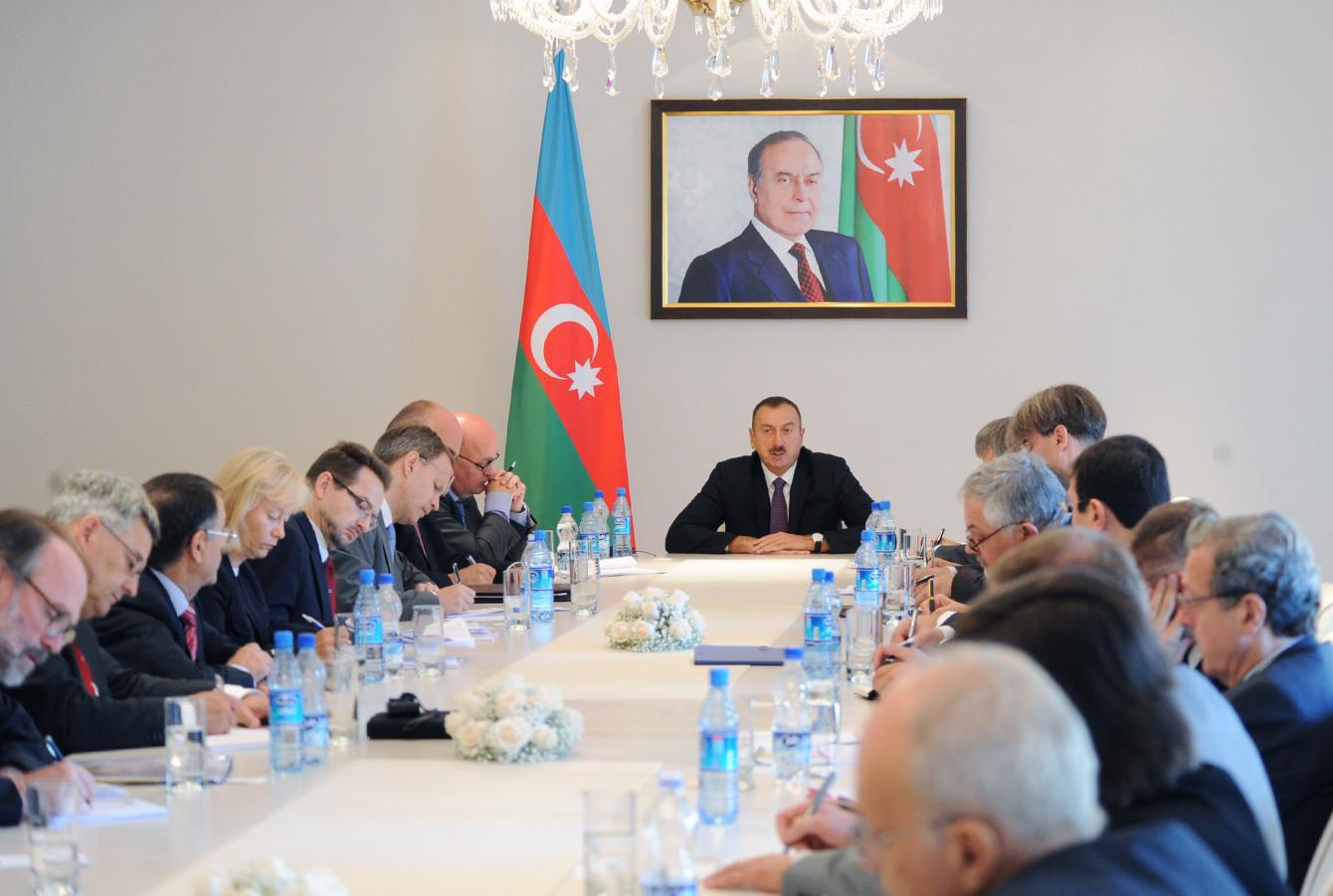
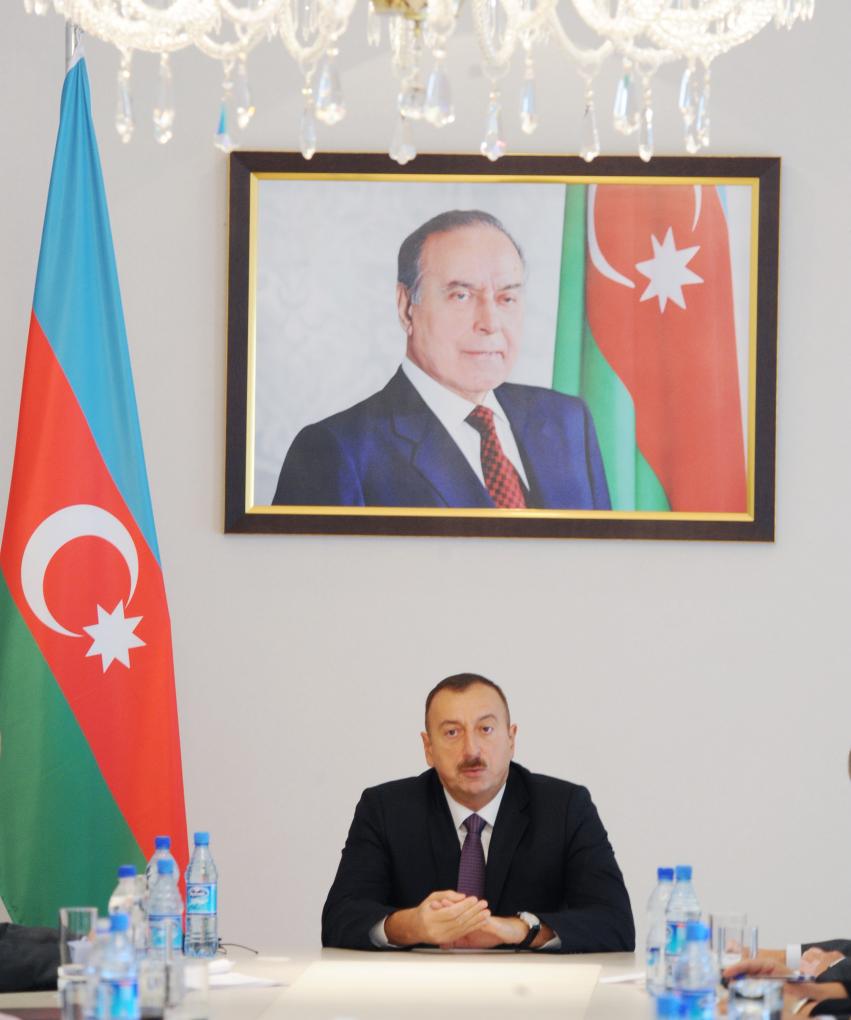
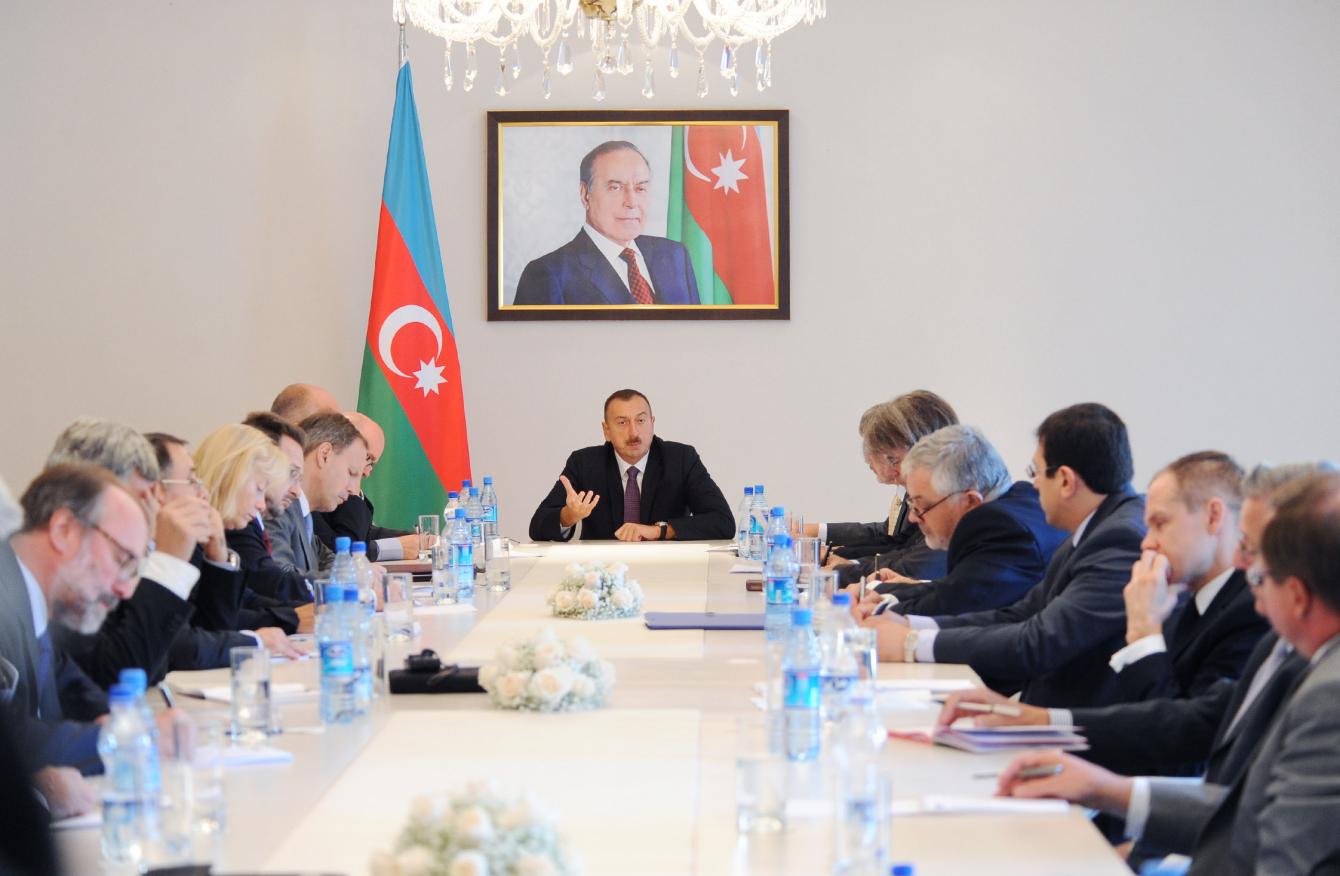
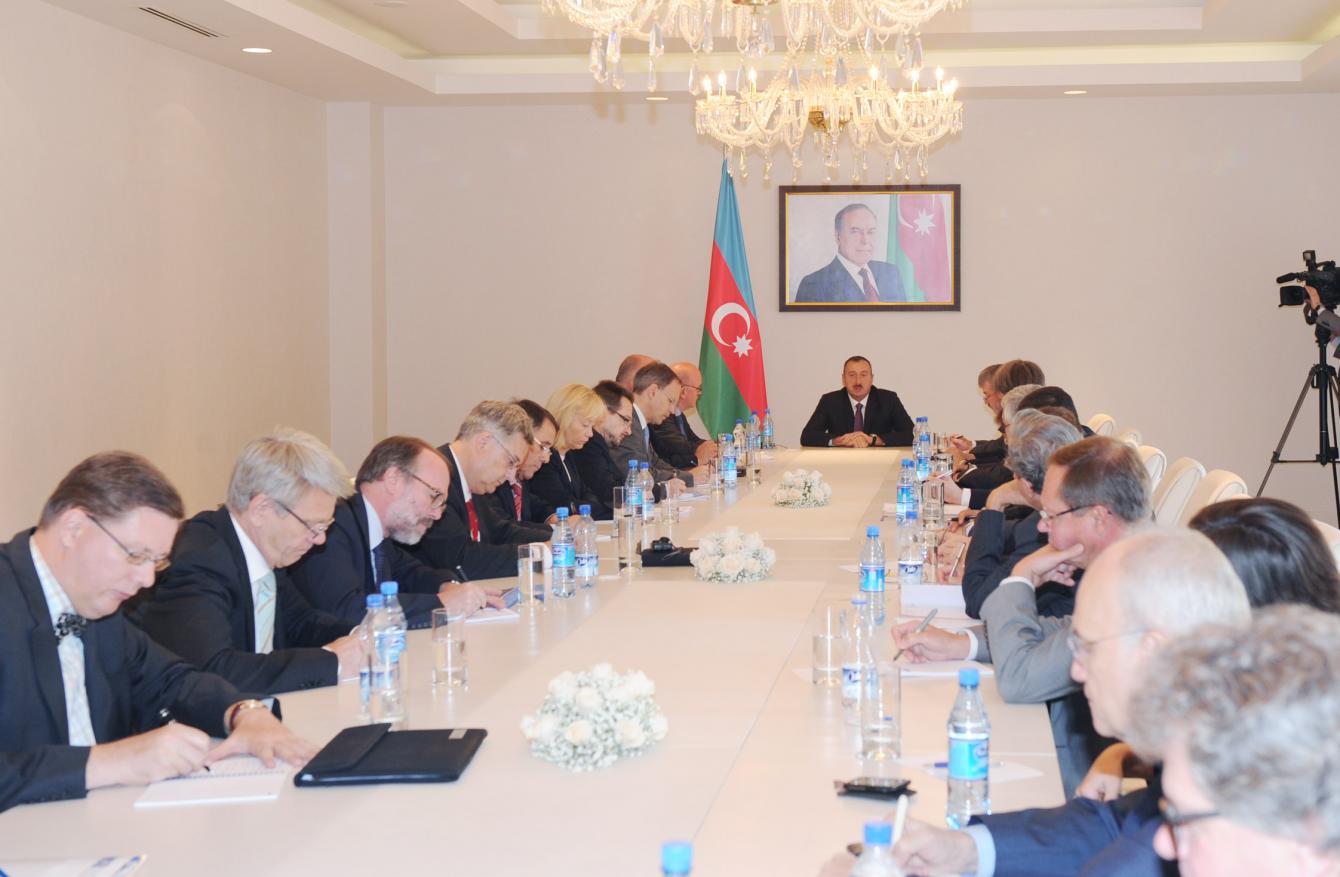
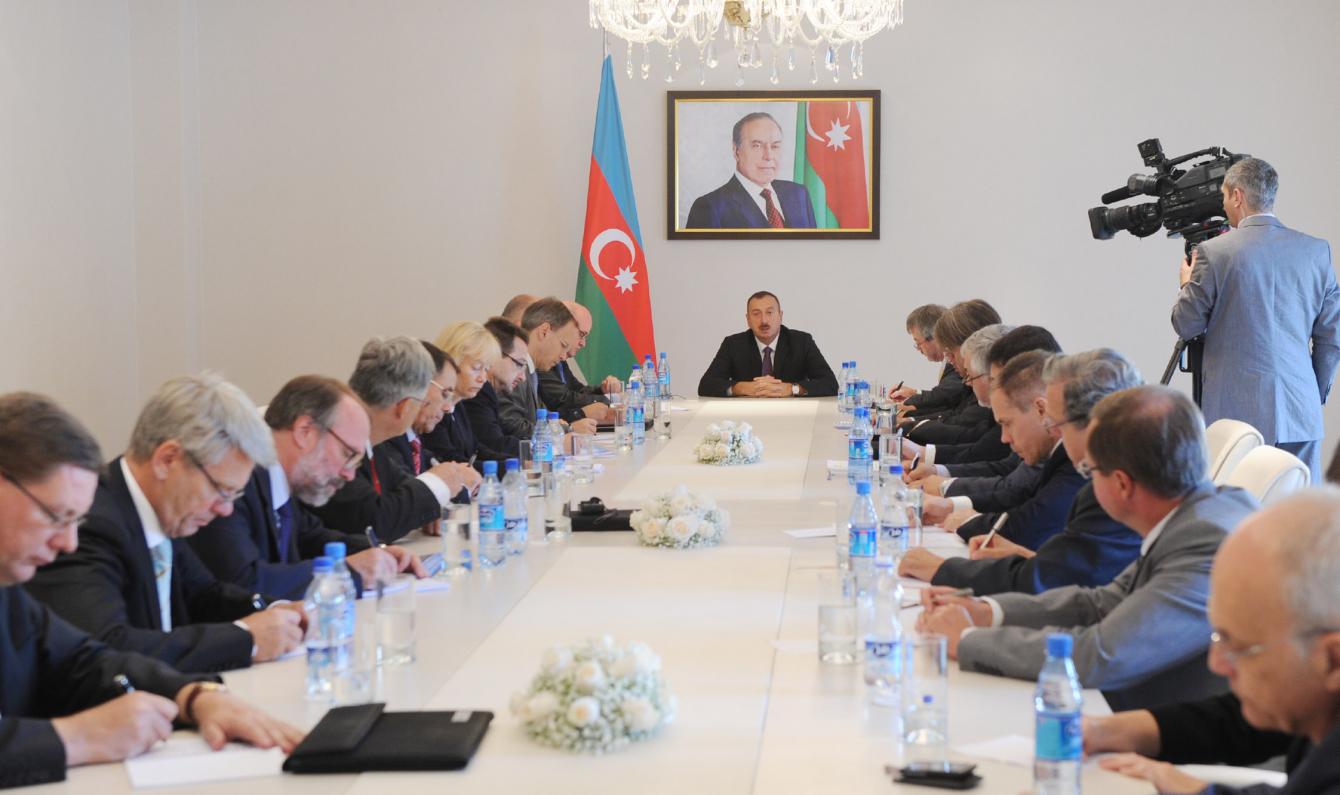
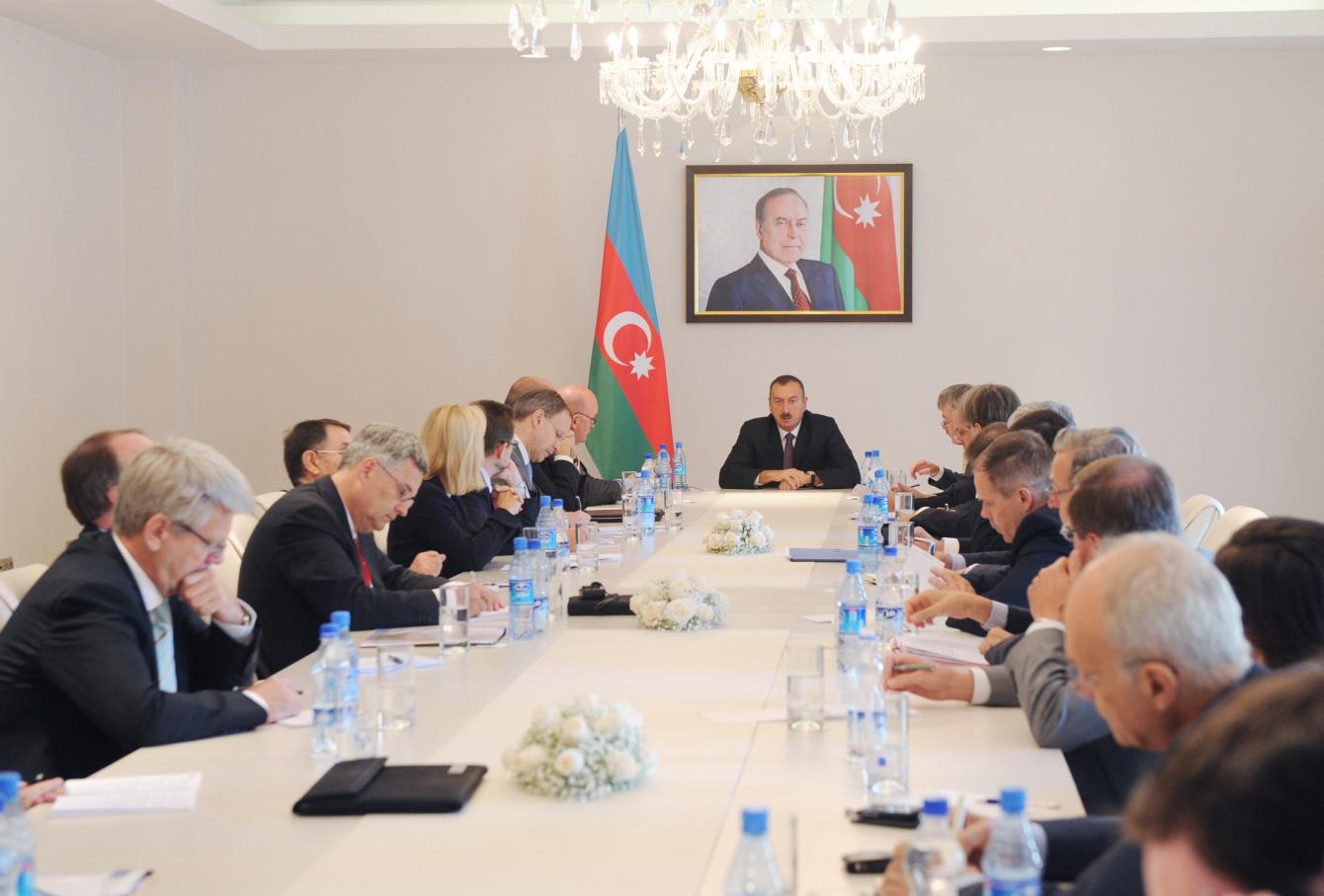
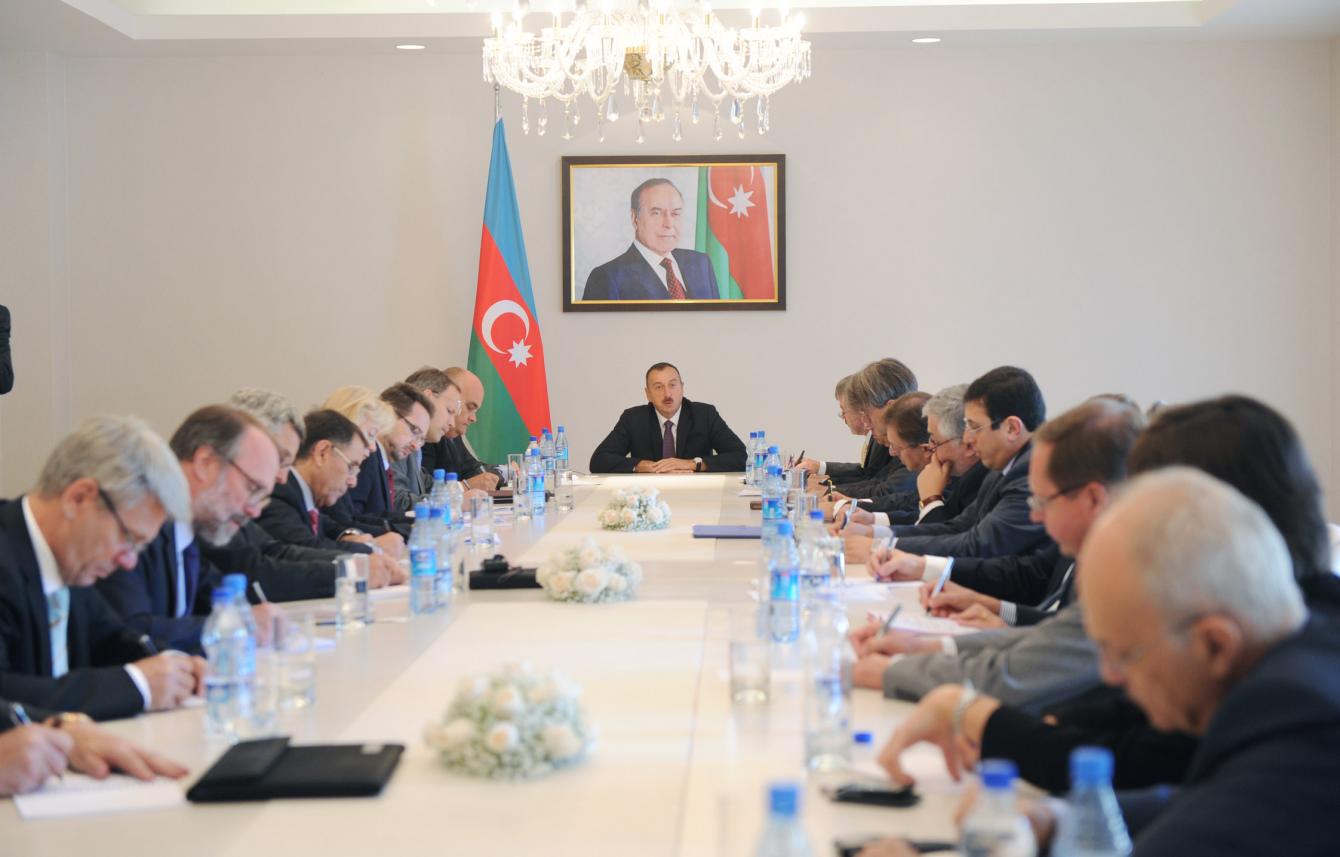
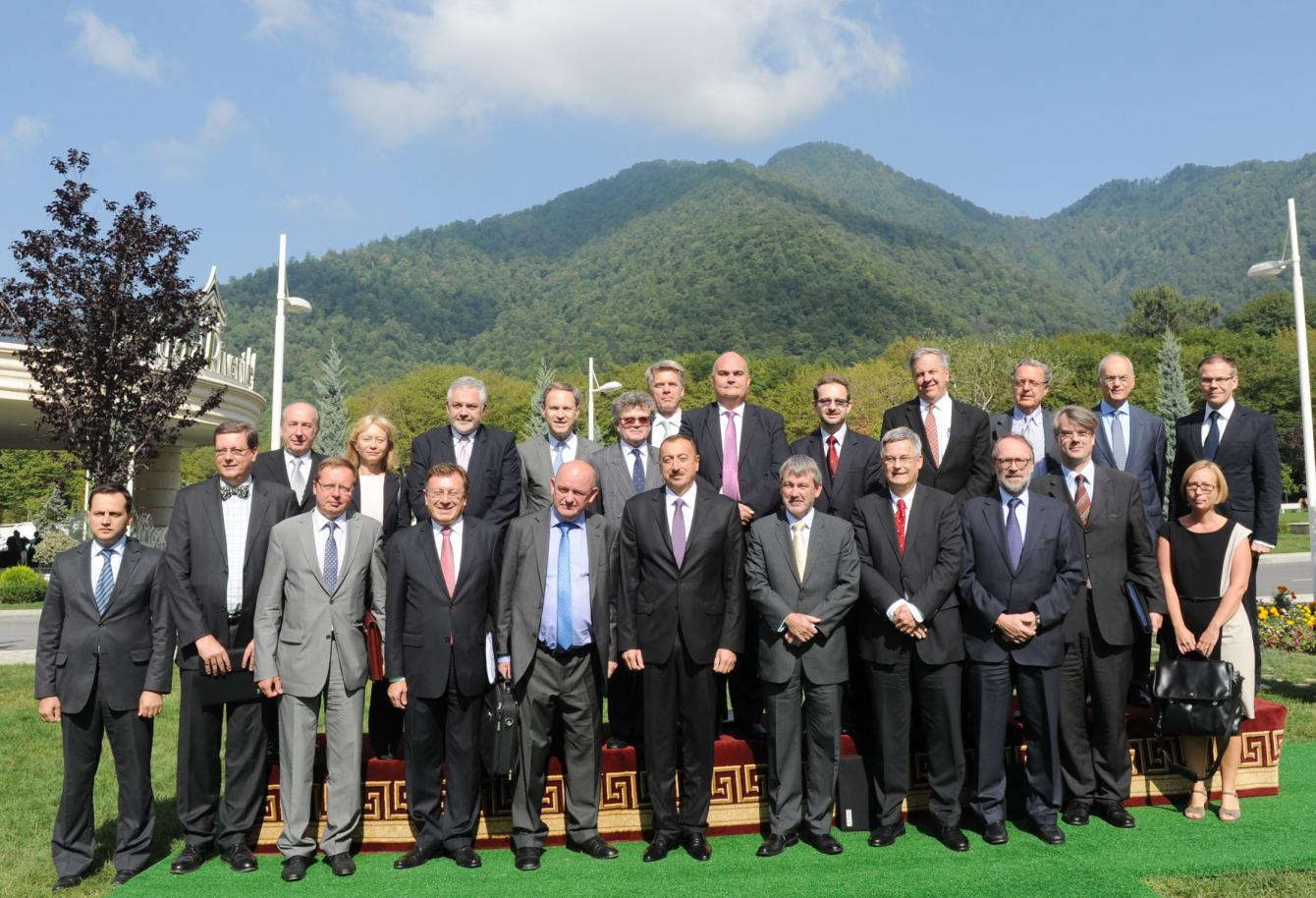
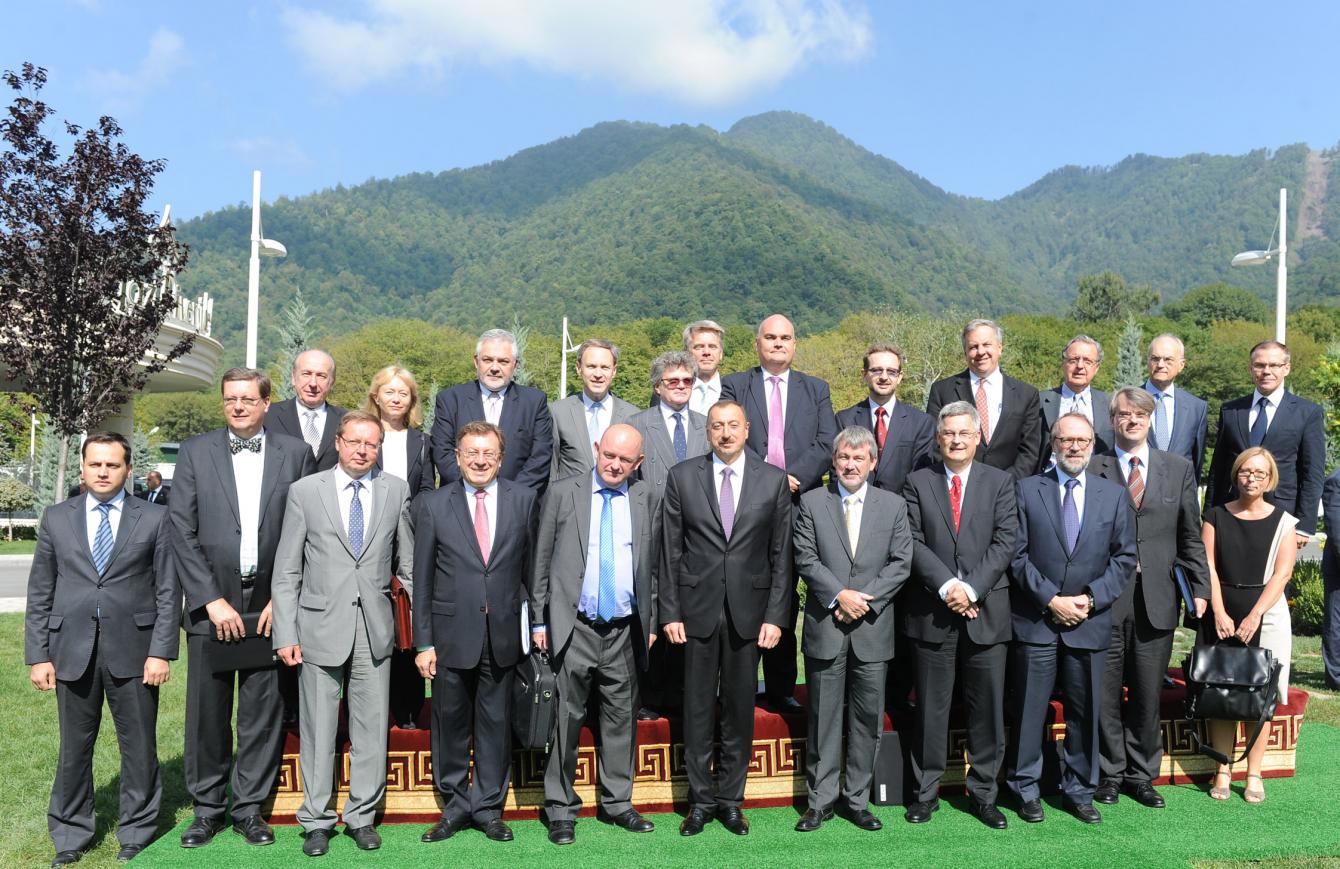

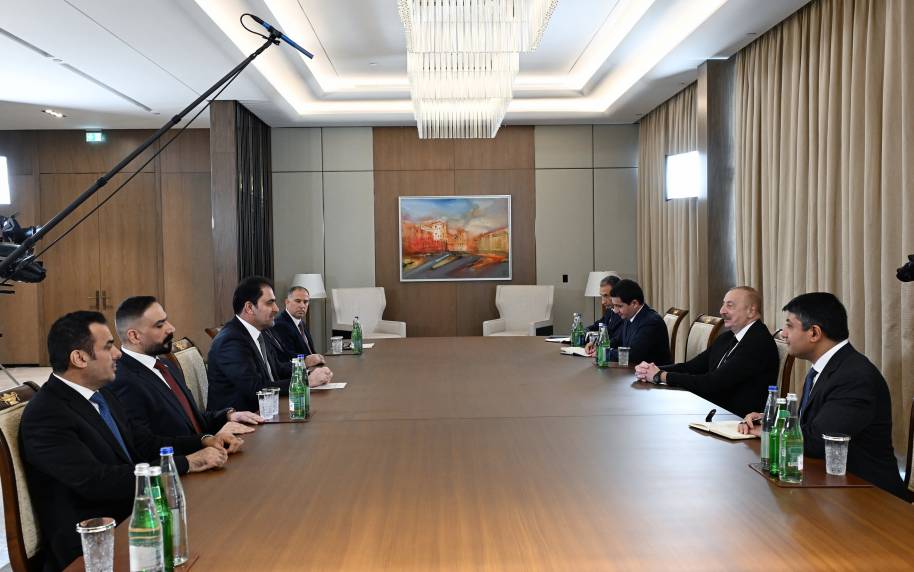
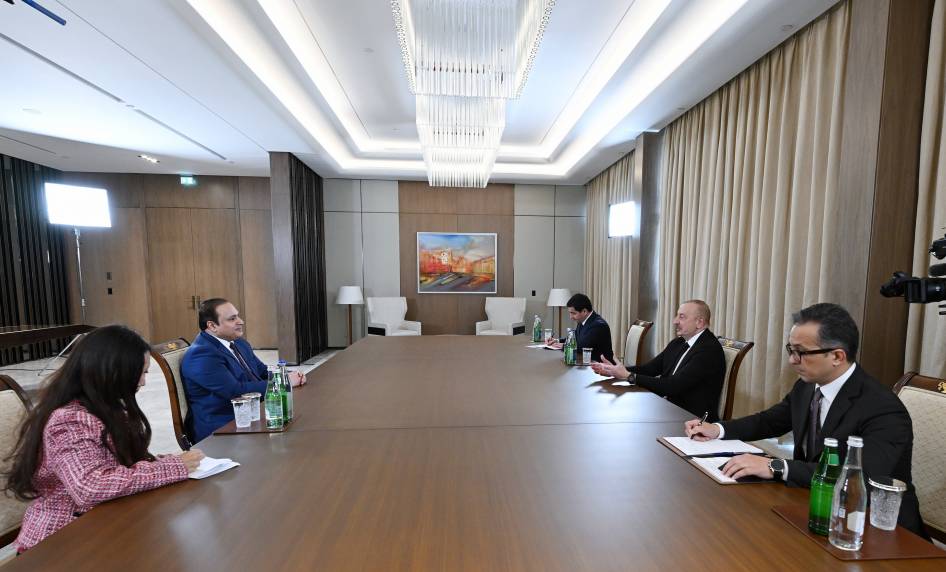
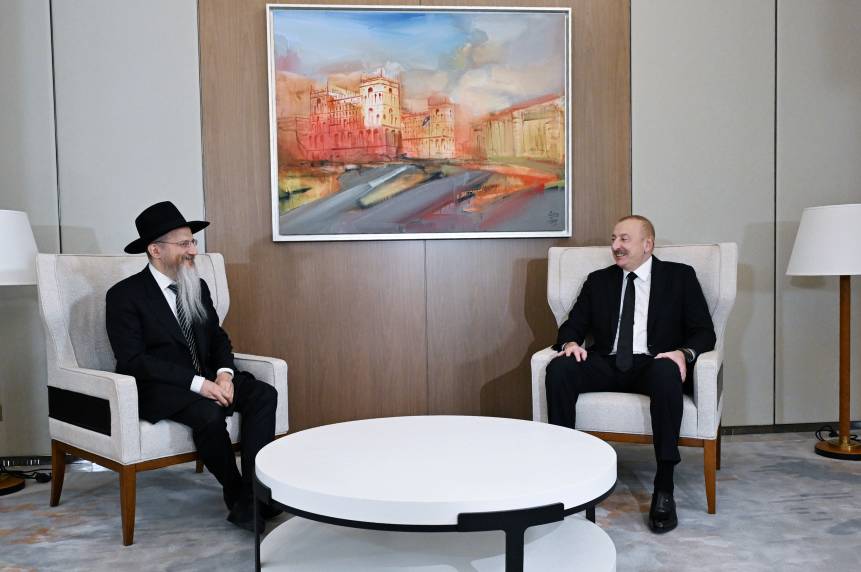
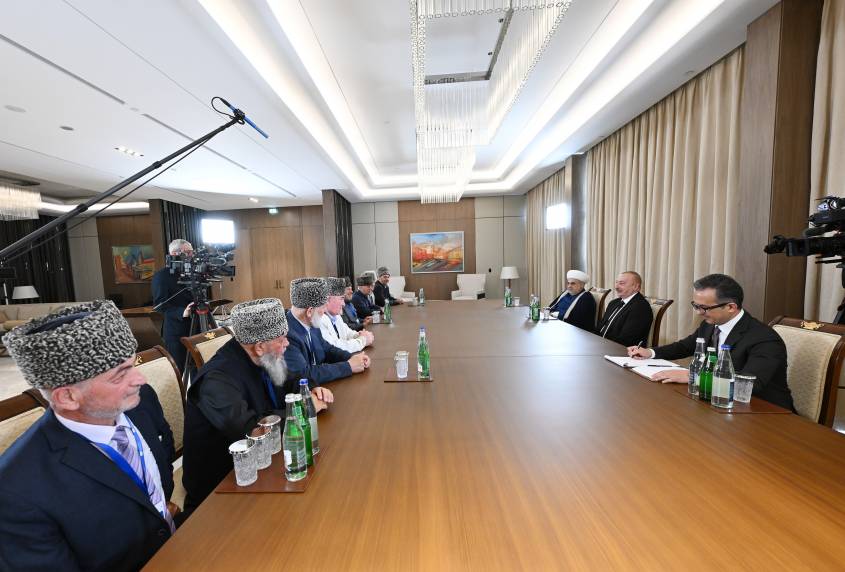
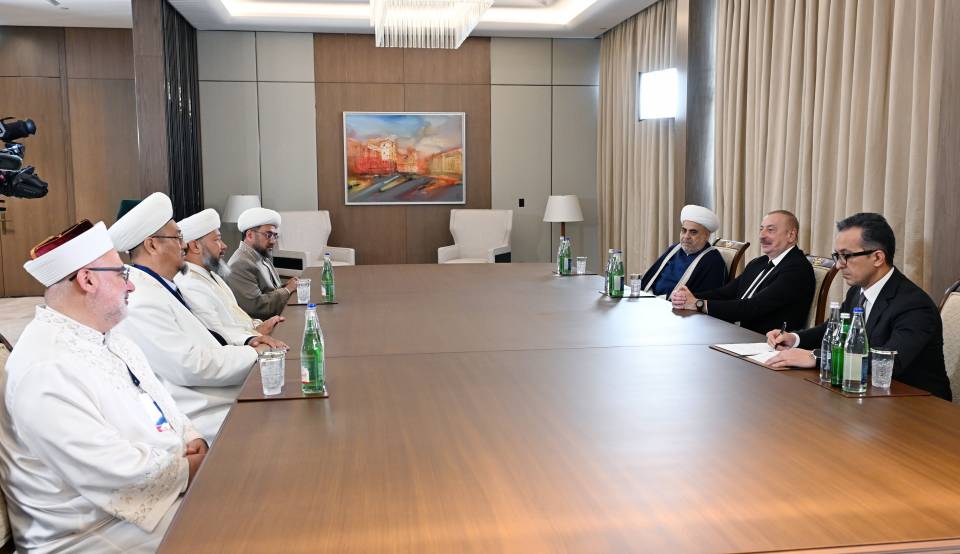
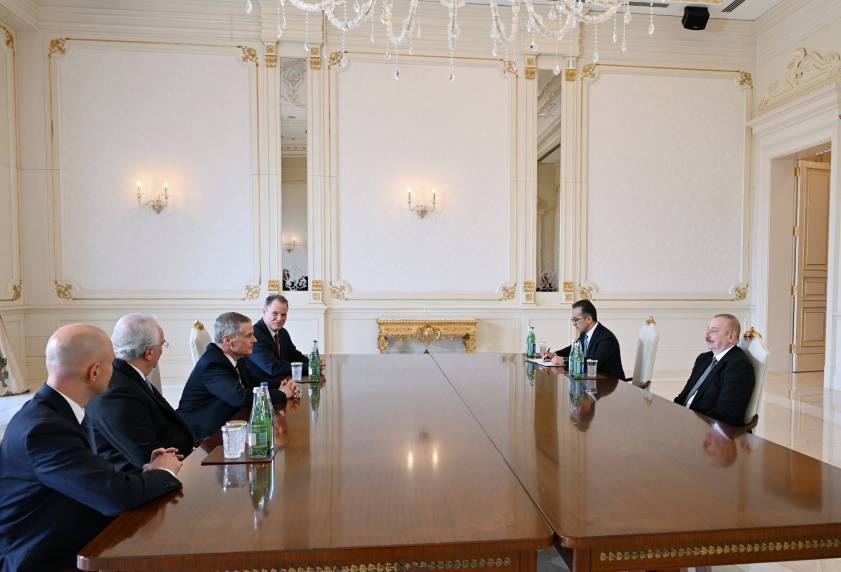
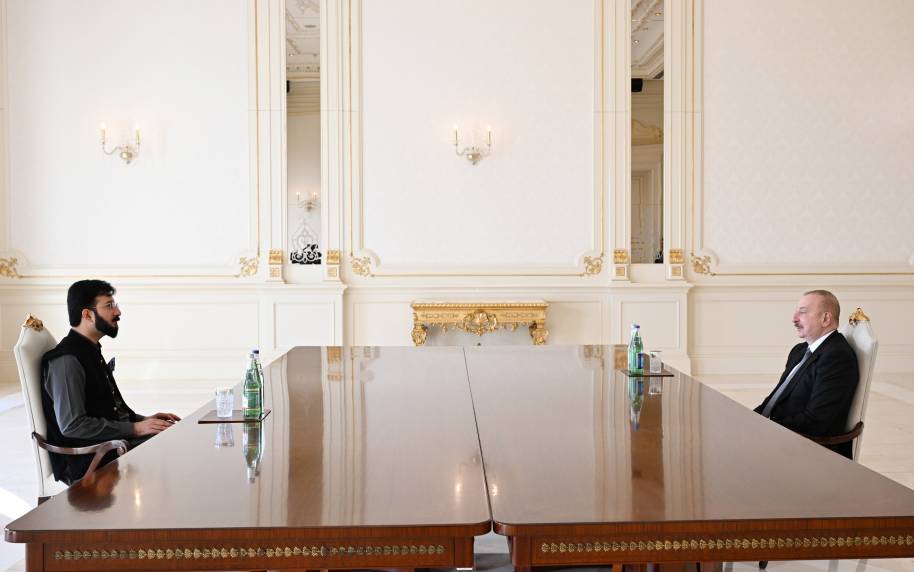
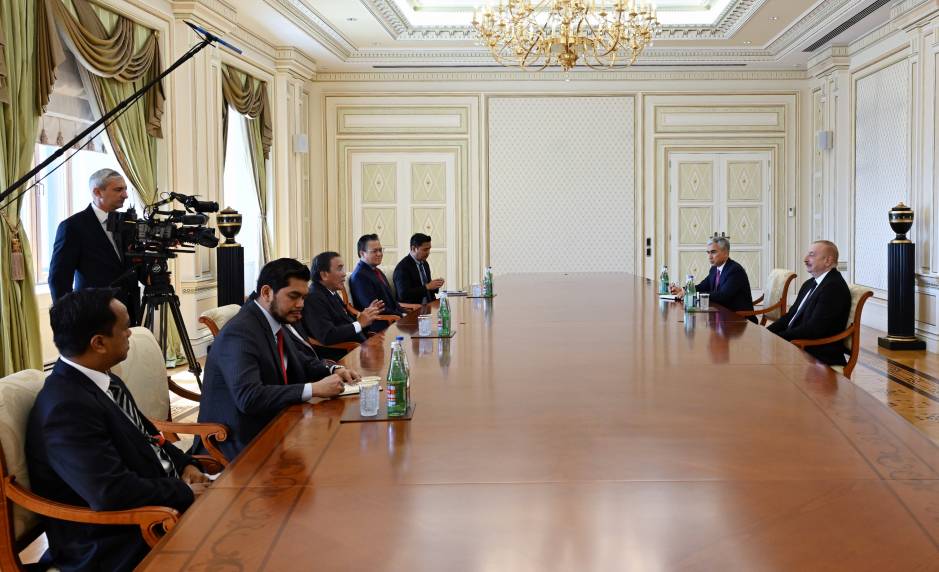
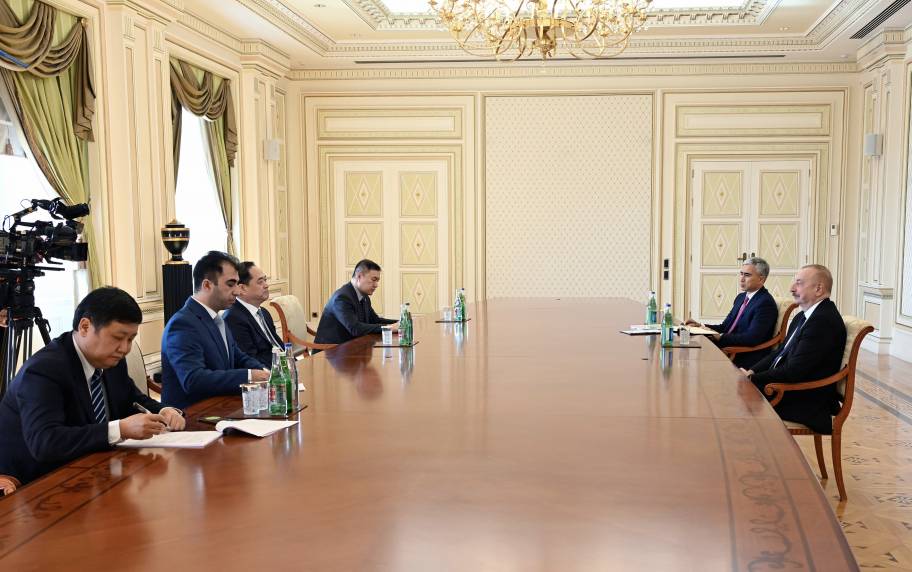
On April 28, U.S. Secretary of State Antony Blinken made a phone call to President of the Republic of Azerbaijan Ilham Aliyev.
Antony Blinken extended his congratulations on the recent agreement regarding the border delimitation between Armenia and Azerbaijan,...
28 April 2024, 22:34